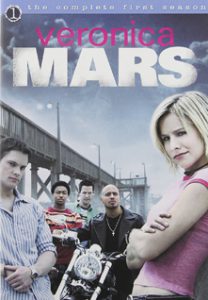As the Marvel Cinematic Universe entered Phase Three it seemed to take on a unique challenge, reinventing itself with each new film. “Thor: Ragnarok” was basically the MCU’s answer to Monty Python. “Ant Man” was an “Ocean’s” movie with a dude who could shrink. Even “Guardians 2” changed things up by being incredibly personal and intimate where the first was loud and brash.
“Black Panther” sees Marvel being more bold than any of those, though.
This is a culturally relevant parable about race, politics and society dressed up in a superhero costume. At the same time, it never sacrifices its sense of fun and wonderment to make the points it wants to make.
The action scenes are tense and compelling, and the comic relief punches in at just the right moments. The visuals are sumptuous and inviting, worthy of the awe they are sure to inspire. But beyond all that, this is a film that knows the moment it lives in.
While not the first African-American-led superhero movie (hi there, “Blade” trilogy), it is most certainly the first to be told in the type of openly divided, racially tense world we live in today. In the wake of Charlottesville, in a world where people dismiss or demonize the Black Lives Matter movement or the peaceful protests of NFL players taking a knee for the freedoms they feel are under literal attack, more is expected of this as both a film and a statement, and it delivers.
It shows us a culture and a people that Hollywood lenses have pretty much unanimously shied away from or reduced to caricature. It shows us this world on the terms of the people who live there. Wakanda is beautiful, complex and wonderful. Its people are self possessed, full of agency, and not filtered through a colonial lense. They defy labels. They just are.
At the same time, their fears are all too tangible. Wakanda is decades ahead of the rest of the world technologically and fully independent, yet they hide their true selves from the rest of the world — from white people, to be clear — because they fear what could happen to them. They fear marginalization, subjugation, homogenization, commoditization. They’re free. They want to stay that way, on their own terms, and they cast a leery eye on a wider world that has so many motivations to not let them.
It is here where a lesser movie might have devolved into a screed, but director and co-writer Ryan Coogler (“Fruitvale Station,” “Creed”) does something pretty nifty instead, turning his film into a conversation, a debate between two different approaches to dealing with such a cold, cruel world.
In doing so, he gives Marvel its most emotionally complex villain ever, and perhaps its best. Killmonger, as brilliantly played by Michael B. Jordan, is someone who has had to live in our world, who has felt the marginalization the rest of Wakanda fears. In his introduction, he walks into a museum and is approached by an employee. He says, in a half-resentful and half-sad tone, that he knows everyone in the place has been watching him since he walked in the door.

It seems like a throwaway line but paints a powerful picture of someone who was, as Chris Rock once said, “born a suspect” by virtue of their race. It is hard, even as the machinations of his plot begin to move, not to feel at least some sympathy for him.
Balancing the equation is Chadwick Boseman’s (“42”) King T’Challa, who sees a place for his nation in the wider world, but understands the fear incumbent in the uneasy first steps. If Killmonger is angry and disillusioned and lashing out, T’Challa is hopeful and optimistic, seeing a future with the wounds of the past healed.
Essentially, the ideals held by each character play like the comic book version of Martin Luther King versus Malcolm X. One seeks to repay injustice with peace in hopes that the world might see the foolishness of its ways. One would repay blood with blood, a solution with quicker, though more chaotic results.
As the film sorts out these themes, it becomes evident that it is not at all interested in any vulgar white points of view on them. There is no “all lives matter” analogue. There is no drunken uncle yelling about Colin Kaepernick. Those vile distractions don’t enter into the calculus of what Coogler is doing here, which is showing a people backed into a corner deciding on the best way to move forward.
You can be an ally or an enemy, and the film has Caucasians in both roles, but they don’t get a voice in the debate because the debate isn’t theirs.
It took an unfathomable amount of guts for Marvel to make this movie, and an incredible amount of savvy for Coogler to craft a brilliant piece of popcorn entertainment that also unflinchingly deals with issues of race.
It is fun. It is thrilling. It is a clarion call to all those who would like to see real change.

